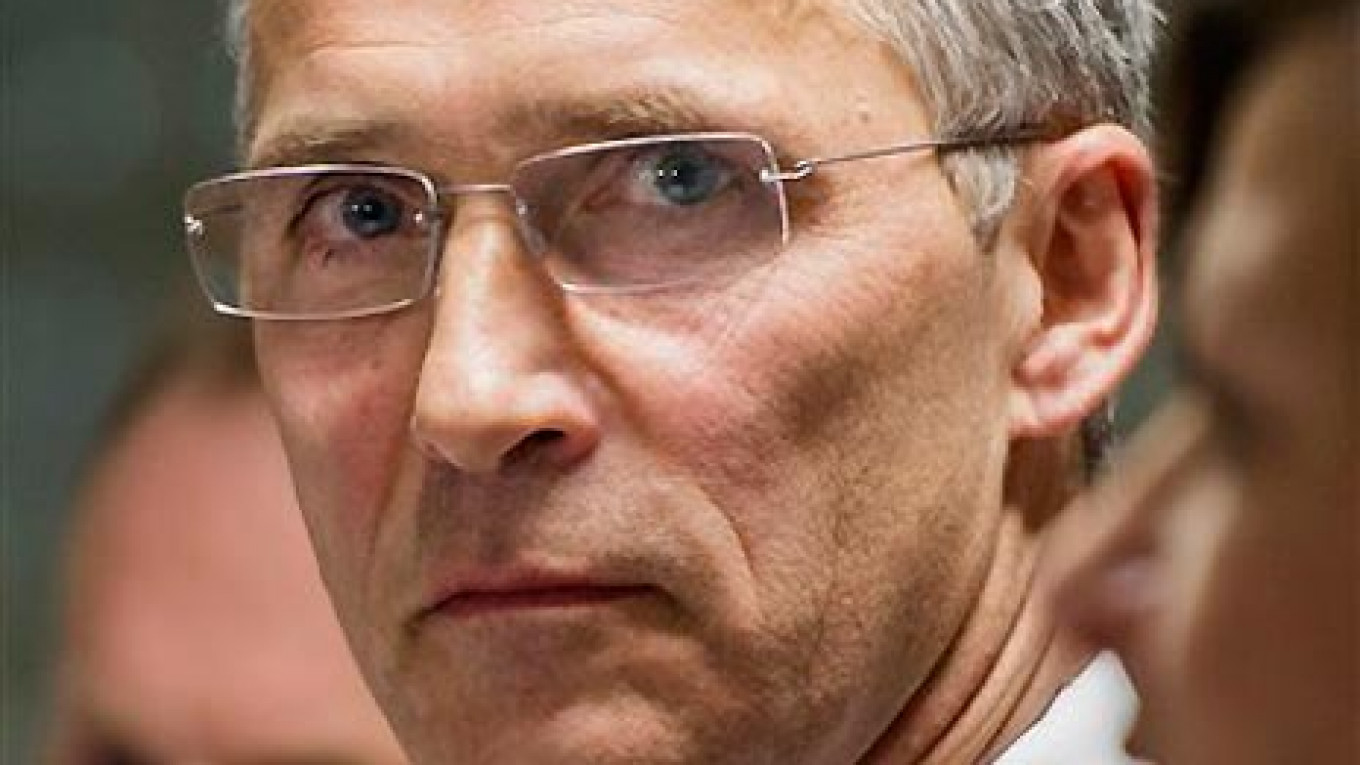OSLO — From his youth as an anti-war activist who hurled stones at the U.S. Embassy to his later years as Norway's leading statesman and negotiator, Jens Stoltenberg will take over the reins of NATO with honed skills in both confrontation and compromise.
The former prime minister and United Nations climate change envoy will assume the role of North Atlantic Treaty Organization secretary-general from Oct. 1 at a delicate time for the security group over Russia's annexation of Ukraine's Crimea region.
"If the task for NATO now is to defuse the crisis with Russia over Ukraine, then Stoltenberg will be eminent. He thrives on compromise. If the task is escalation, he will not be bad, but there are others who could do a better job," said Frank Aarebrot, professor of comparative politics at the University of Bergen and an acquaintance of Stoltenberg.
"He has a strong presence, in the Bill Clinton sort of way. When he is talking to you, you feel like the most important person in the world," Aarebrot said.
The son of a former defense and foreign minister, Stoltenberg, 55, negotiated a deal with Russia that ended a four-decade dispute over their Arctic maritime borders and built a personal friendship with then-President Dmitry Medvedev.
He has made it clear that the annexation of Crimea by Vladimir Putin's Russia, which has raised the need for NATO to boost its presence on Europe's eastern edge, cannot stand.
"Russia's use of military force to modify its borders is unacceptable," Stoltenberg said. "The conflict in Ukraine must be a political solution … We will not live in a world where the strongest one prevails."
"Russia's move is in breach of international law and it is a type of power policy that belongs in a past era."
Stoltenberg, who lived several years as a child in Belgrade where he learned to speak Serbian, served 22 years in parliament and was prime minister from 2005 to 2013 at the head of a Labour Party-led coalition.
"His strength is that he's got a vast political network and good political intuition … and he will also listen to civil society, not just people within the 'security cage'," said Jan Egeland, a former UN under-secretary general.
China, Colombia, Afghanistan
He stood up to China when it reacted with fury to the Norwegian Nobel Committee's decision to award the 2010 Peace Prize to dissident Liu Xiaobo, saying it amounted to interference in its internal affairs.
Stoltenberg persisted in supporting the committee despite Beijing's threats about the consequences, and relations between the two nations have been essentially frozen since, with some Norwegian firms, such as energy group Statoil, essentially shut out from the country.
He also pushed his government to mediate, often in secret, to resolve some of the world's longest conflicts, hoping Nordic patience and long history of mediation would bear fruit.
Norway's diplomats helped bring Colombia's government and Marxist FARC rebels to the negotiating table in 2012 and mediated between the Taliban and the West, once even bringing Taliban leaders to Oslo to engage them on democratic rule.
"He is respected across party lines and political lines and he is a good listener who will take in an enormous amount of information from various sources and put into policy," said Egeland, now the head of the Norwegian Refugee Council.
A Message from The Moscow Times:
Dear readers,
We are facing unprecedented challenges. Russia's Prosecutor General's Office has designated The Moscow Times as an "undesirable" organization, criminalizing our work and putting our staff at risk of prosecution. This follows our earlier unjust labeling as a "foreign agent."
These actions are direct attempts to silence independent journalism in Russia. The authorities claim our work "discredits the decisions of the Russian leadership." We see things differently: we strive to provide accurate, unbiased reporting on Russia.
We, the journalists of The Moscow Times, refuse to be silenced. But to continue our work, we need your help.
Your support, no matter how small, makes a world of difference. If you can, please support us monthly starting from just $2. It's quick to set up, and every contribution makes a significant impact.
By supporting The Moscow Times, you're defending open, independent journalism in the face of repression. Thank you for standing with us.
Remind me later.






